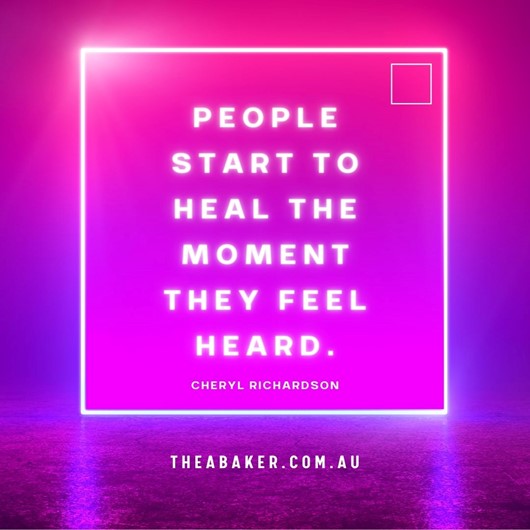Trauma-informed therapy
Trauma-informed therapy
Quite a few years back now I was working as a Women’s Health Coach and Personal Trainer with a special interest in working with women who had experienced physically and / or psychologically traumatic births at the same time as studying my Masters in Counselling. I had this realisation that when working as a trainer, coach or any kind of fitness professional there was a very real chance of working with people who had experienced some kind of trauma that might interfere with their ability to engage in exercise.
At this time, I also had the pleasure of presenting at various health and fitness conferences in Australia and New Zealand and I felt strongly called to share some of my research and learnings around what I called at the time ‘trauma-informed personal training’ because I had this strong awareness that there was literally no education at the time around this for fitness professionals. At the time I felt like an outlier – ‘trauma’ was something that was talked about in certain mental health spaces, but certainly didn’t have the kind of broad understanding that it does now.
Trauma-informed care frameworks followed the research and awareness around the Adverse Childhood Experiences Study (ACES) which I spent a couple of weeks writing about a few weeks ago (click here and here). https://www.theabaker.com.au/adverse-childhood-experiences-aces/ https://www.theabaker.com.au/positive-protective-adverse-childhood-experiences-paces/ In other countries – USA and UK in particular – this approach is probably more developed than in Australia however I think it’s super important that we understand what is meant by ‘trauma-informed’, what it might mean for us when we are engaging in therapy or in other services (health and fitness, allied health, human service system etc.)
so that we are not only informed consumers of that service, but also that we have the best chance of engaging in services that help us feel safe and understood.
What does it mean to be trauma-informed?
There’s no singular definition of trauma-informed care but broadly speaking it involves having an appreciation of, and accounting for someone’s trauma and its impact on their behaviour, mental health and ability to engage in treatment. People who are trauma-informed make an assumption that a client could have a trauma history and will take steps to avoid inadvertently triggering or retraumatising that client in treatment.
Broadly speaking, trauma-informed care follows these five principles:
- Safety
Safety begins at the front door, where privacy is respected, and the area is welcoming to all people. There is a focus on the physical and emotional sense of safety of every client, ensuring that they have an understanding of what will happen next.
- Choice
Choice is where the client has clear control, and consent is obtained by making sure the client fully understands their rights and can provide continuous consent.
- Collaboration
Collaboration happens when the practitioner, rather than acting as the expert to the ‘sick’ person, asks the client to share their power and make decisions on what treatment goals they would like to work on. They have a significant role as the expert in their care.
- Trustworthiness
Trustworthiness means always being honest, clear and consistent, especially with maintaining boundaries and never violating the client’s trust.
- Empowerment
Empowerment means that the client should always feel heard, cared for, and validated by all staff as they focus on helping them build more coping skills and learn to regulate their emotions.
What does trauma-informed therapy look like?
Not all therapists are trauma-informed. Trauma-informed therapy isn’t about a specific intervention but rather tailoring interventions in the context of an individual’s trauma history, triggers and specific needs. It is a lens through which the therapist views their clients, taking into account the impact of trauma on emotions, regulation and behaviour. They will also consider the effects of intergenerational trauma on their clients and matters of culture and diversity which intersect all of these issues.
Trauma-informed therapists see clients as unique individuals who have experienced extremely abnormal situations and have managed as best as they could and their approach is non-pathologising in the nature of the treatment modalities that they work with. Their practice will emphasise the following:
- Physical and emotional safety
- Collaboration
- Transparency
- Competency (making sure they are educated and up-to-date in research and best practices in the trauma field)
Whilst not everyone has experienced trauma, a trauma-informed approach will not harm someone who doesn’t need a trauma-informed therapist, and my strong belief is that the trauma-informed principles of care should be best practice because they are founded on principals of what I call ‘just be a good human’.
If this blog has brought up something in your life that you’d like the space to explore, we have a team of trauma-informed therapists at Thea Baker Wellbeing and we have IMMEDIATE availability – please reach out to us at: hello@theabaker.com.au / 03 9077 8194.


